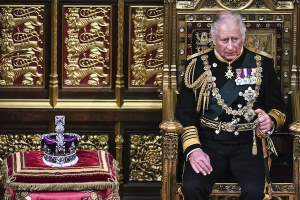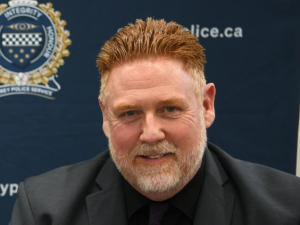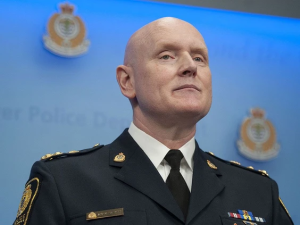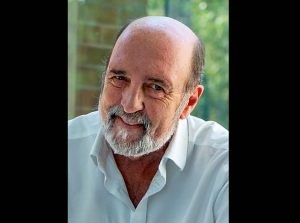In light of King Charles’ coronation, Prof. Emeritus Philip Resnick asks: should Canada retain a British monarch as our official head of state?
“Were Canada to go the republican route, we would need to do so through a long constitutional process. The Canadian constitution states that there must be unanimity of the provinces for changing the head of state. In addition, treaties between First Nations and the Crown would have to be carried forward into a Canadian republic.”
Prof. Max Cameron says conflict of interest complaint against Coun. Rob Stutt “may have merit”
“At minimum, Stutt should have disclosed that his son and daughter worked for the RCMP and also possibly recused himself,” said Prof. Cameron. “While it may not amount to a conflict of interest, it could create the appearance of a conflict of interest, which is also important.”
Op-Ed: Prof. Kathryn Harrison writes that LNG Canada is “bullying provincial and federal governments”
“LNG Canada’s project cleared federal and provincial environmental assessments in 2015. However, both levels of government still have options to ensure that this project only proceeds if it’s consistent with climate goals,” write Prof. Kathryn Harrison and colleague Karen Tam Wu.
PhD Graduate Sarah Lachance’s dissertation explores how voters deal with uncertainty during elections
PhD graduate Sarah Lachance examines how voters respond to polarization, strategic voting in proportional-representation systems, and policy ambiguity
Op-Ed: the recent VPD social safety net report “isn’t about policing at all,” argues Prof. Carey Doberstein
“In fact, the report isn’t about policing at all,” says Prof. Doberstein on the recent VPD “social-safety-net” report. Rather, it “makes ignorant and oversimplified pronouncements about how funds are directed.”
Prof. Gerald Baier deliberates the BC Liberals’ decision to rebrand as ‘BC United’
“They’re doing an old thing that political parties have done for a long time,” Prof. Baier says, “which is to have a name that allows them to appeal to more than one narrow constituency.” Still, there are fears that this choice may backfire for Liberals worried about the party’s direction.
Prof. Kathryn Harrison comments on the “rise in illegal deeds as a form of activism”
“I think my concern with this form of civil disobedience,” says Prof. Harrison, “is that the connection to the actions that they are trying to get from governments from their fellow citizens is not clear enough.” She acknowledges the activists’ goals, but notes that their actions may actually have an opposite effect.
Prof. Kathryn Harrison co-authors article on the future of Canada’s energy sector
Prof. Kathryn Harrison collaborated with Prof. Simon Donner on a piece that highlighted the challenges ahead for Canada’s energy sector. “The differences in energy demand across scenarios are significant, both for the planet, and for Canadian oil and gas producers,” they write.
Prof. Kathryn Harrison on the boldness, riskiness, and power of activism in climate politics
“Civil disobedience is an act of public communication,” Prof. Harrison says in this CBC article. “It’s someone saying, ‘I am so frightened or I am so disturbed by an injustice that I am willing to put myself on the line to try to change your mind,’”
Prof. Gerald Baier comments on David Stuart serving as both North Vancouver District CAO and Port Moody councillor
David Stuart, already holding office as North Vancouver District Chief Administrative Officer, was recently elected as councillor for Port Moody. Few take on two civil service roles at once, but Prof. Baier acknowledges that Stuart is “allowed to have outside interests.”









